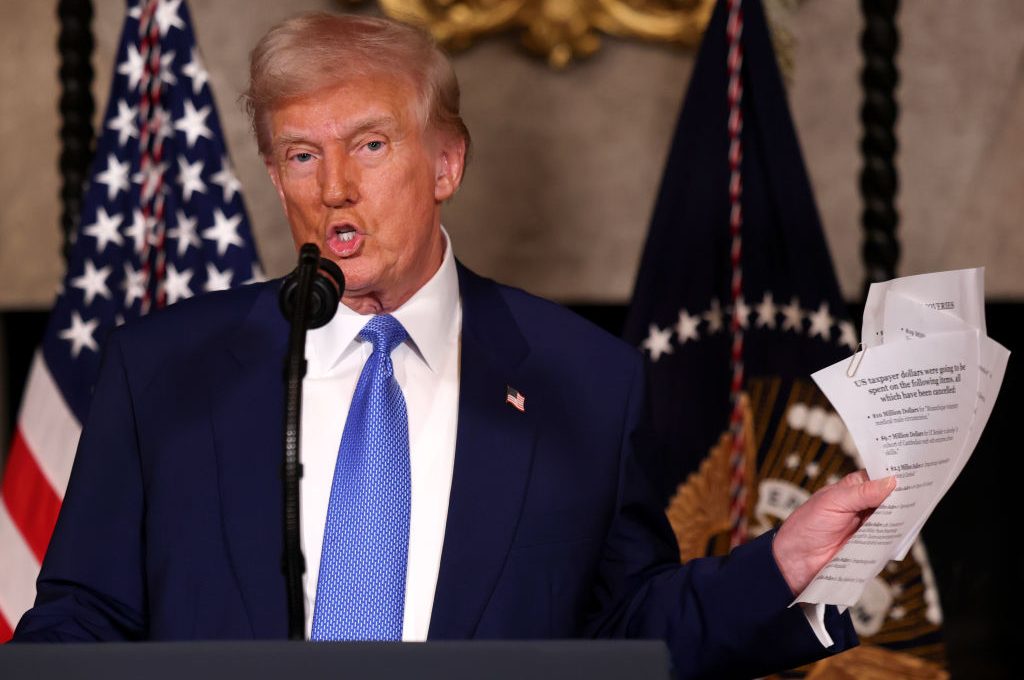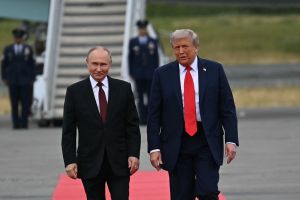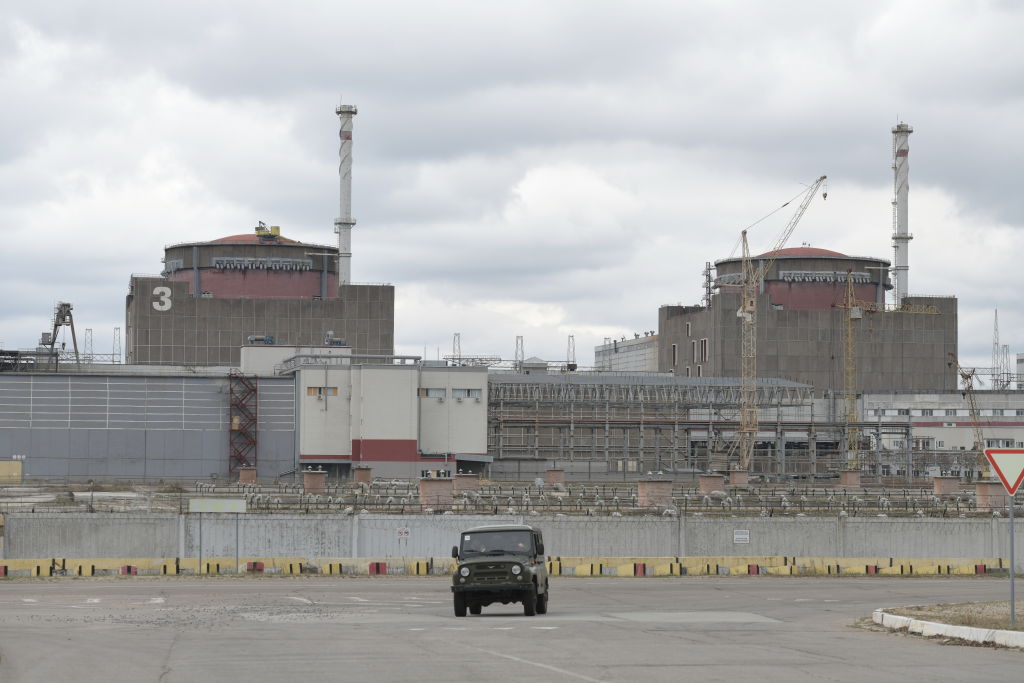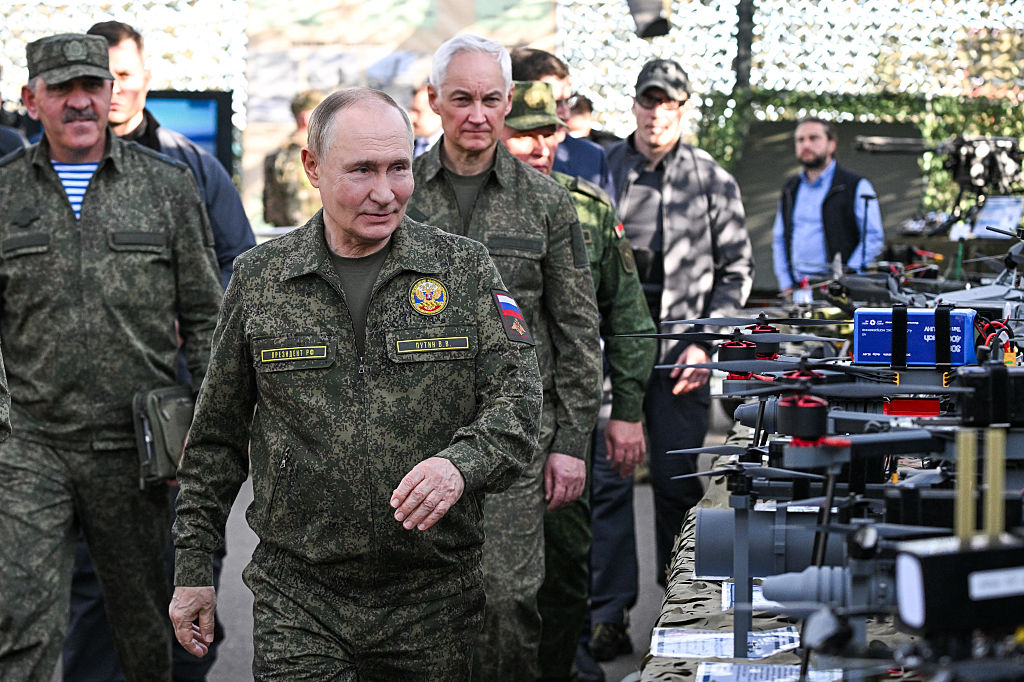Panic, even hysteria, has swept Europe. Its leaders realize that in their case Trump should be taken literally as well as seriously, and he seems prepared to trade the transatlantic alliance for détente with Russia. Eight decades of good times for the continent might be coming to a dramatic end.
Trump demonstrated contempt for Europe during his first term; however, his top aides moderated his antagonism, carrying on policy as normal. While out of office he evidently decided never again. Today he is firmly driving American foreign policy.
As ever, Trump’s tactics are often dubious, even counterproductive. However, only shock treatment is likely to cause Europe to take its own defense seriously. More than a decade ago defense secretary Robert Gates delivered a powerful valedictory address warning continental leaders that “Future US political leaders —those for whom the Cold War was not the formative experience that it was for me — may not consider the return on America’s investment in NATO worth the cost.” His charge, though, had no more impact than similar cautions by a succession of other American officials. Now Trump is making Gates’s warning into reality.
Sheer determination, accented by seeming irrational irascibility, is also necessary in dealing with what has been called “the Blob,” America’s foreign policy establishment. Notably, opposition to most any change in the defense relationship with Europe is as sharp and frenzied in Washington as in Brussels.
Although continental leaders are wailing about the Trump administration’s behavior, they are to blame for their predicament. For instance, despite brave talk about putting together a European peacekeeping mission for Ukraine, no one believes European governments can raise the necessary forces or proceed without the US, especially the latter’s Article 5 backing. The British government is avidly pushing the idea — with Prime Minister Keir Starmer visiting Washington later this week — yet former army head Richard Dannatt tartly observed: “Our military is so run down at the present moment, numerically and as far as capability and equipment is concerned, it would potentially be quite embarrassing.”
Despite the obloquy showered upon Trump by the transatlantic chattering classes, he has correctly assessed transatlantic fundamentals. The Times of London’s Matthew Parris was a rare European who comprehended the new reality: “The news from Munich pointed not to appeasement but to a dawning recognition of the obvious.” Put bluntly: it is in America’s interest to end the Ukraine war, restore relations with Russia and shift responsibility for Europe’s defense to Europe.
The humanitarian horror of the ongoing conflict is obvious. Waging a proxy war-plus is also dangerous. Russia’s Vladimir Putin is responsible for invading Russia. Allied officials, however, were no Vestal Virgins and share blame for the conflict. They lied to both the Gorbachev and Yeltsin governments, consciously crossed Russian red lines, ignored explicit warnings against expanding NATO and behaved in ways that they would never have accepted by Moscow. Imagine if Russia had expanded the Warsaw Pact into Central America, aided the overthrow of Mexico’s elected, pro-American president, worked to install friendly officials in the new government and built a military relationship with that regime. Washington would be aflame.
Supporting Ukraine has been expensive, though admittedly modest compared to the price of Washington’s major defense commitments. More important, though, is the war’s rising danger of expansion and escalation. The allies have provided Kyiv with the means to kill thousands of Russian soldiers. During the first Trump administration candidate Joe Biden demanded retaliation for imagined Moscow support for the Taliban; Russia has far greater reason to seek revenge. Although Putin’s relative restraint has caused allied hawks to suggest that he’s a closet wimp, he likely would do far more than engage in random sabotage if he believed he was losing. Waging a vigorous proxy war is particularly risky when the target is a nuclear armed great power. The longer the conflict drags on, the greater the potential for anger, accident, or mistake triggering a catastrophe.
Claims that sustaining Ukraine is all that prevents a new Russian empire stretching to the Atlantic is nonsensical. Putin may be evil, but nothing suggests that he is a megalomaniac and fool. Tucker Carlson asked the Russian leader if he intended to invade Poland. Putin answered: “Only in one case, if Poland attacks Russia. Why? Because we have no interest in Poland, Latvia or anywhere else. Why would we do that?” Although he obviously cannot be taken at his word, he has demonstrated no interest in conquering non-Russians, been in power for a quarter century without attempting to recreate the old empire, and consistently warned the West against turning Kyiv into a military ally. Nor is an armed forces that has made so little progress in three years against Ukraine going to subjugate the rest of the continent, even after extensive refit and reform. Ending what Putin has consistently cited as the greatest threat facing his nation would deflate Moscow’s tensions with the West and reasons to threaten military action.
Although the Cold War thankfully remained mostly cool, the world teetered on the brink during the Cuban Missile Crisis, and edged uncomfortably toward conflict at other times, such as during the 1983 Able Archer exercise. Even Moscow recognized that the collapse of the Soviet Union opened a new path for the future. In fact, President Putin initially sought to join the West. During his 2001 address to the Bundestag just a couple of weeks after 9/11 Putin observed that, “No one calls in question the great value of Europe’s relations with the United States.”
However, much changed before his very different message at the 2007 Munich Security Conference address. Among his tragically accurate charges against the US: “We are seeing a greater and greater disdain for the basic principles of international law. And independent legal norms are, as a matter of fact, coming increasingly closer to one state’s legal system. One state and, of course, first and foremost the United States, has overstepped its national borders in every way.” Putin’s credibility may be tattered, but his hostility toward Washington is based on policy, not ideology.
Russia originally had no territorial disputes with America, remained committed to nonproliferation with Iran and North Korea and even provided logistical aid for Washington’s war in Afghanistan. Moscow’s support for Syria ran back decades and its dominant role in Central Asia mattered little. Russia’s relationship with China was merely civil, with some significant tensions. All this changed after 2022. Moscow has forged ever closer relationships with China, North Korea and Iran. Although none of these ties match the intimacy of US alliances, they all challenge American policies. Particularly important are stronger relations between Russia and both China, which poses the most significant geopolitical challenge to Washington, and North Korea, which would greatly benefit from assistance for its missile and nuclear programs.
Of course, Russia is an authoritarian power, but the US has never let that interfere with an otherwise beautiful friendship. American (and British) policymakers regularly make the pilgrimage to Riyadh, and provided the weapons used by the Kingdom of Saudi Arabia to kill Yemeni civilians. Washington’s objective should not be to turn Moscow into a replacement ally for Europe, but to limit the significance and lethality of its aid to other US adversaries. Détente with Russia needn’t mean demonizing allies or abandoning human rights but seeking a more balanced relationship to advance Americans’ security.
For years European leaders, most recently French president Emmanuel Macron — who is in Washington today, have imagined Europe as a Weltmacht. Which explains the panic that convulsed EU leaders after Trump dismissed them with nary a thought from his planned negotiations with Moscow over Ukraine. For decades Washington pretended to treat Europeans seriously. One of Trump’s virtues is his rejection of such pretense and cant.
This shift is long overdue. Washington’s dominant role in European security was originally supposed to be temporary. President Dwight D. Eisenhower believed that the US had “to assist these people” to “regain their confidence and get on their own military feet.” European members of NATO, however, refused to fulfill their defense duties and keep their promises about spending even during the Cold War. They responded to the end of the Soviet Union not by taking on more responsibility, but by doing even less. At the same time a succession of US administrations treated NATO membership like Facebook friendship, the more the merrier, and hence added such defense nullities as Montenegro, North Macedonia and the Baltics. This constantly expanded American military responsibilities rather than security. All the while US policymakers complained about European cheap riding.
Indeed, ultimate blame for turning European states into “welfare queens” falls upon the US. Washington solons preferred to dominate Europe and use it as an instrument of power than to maximize American security and put protection of the US population first. The financial and military burdens for underwriting the world fall hard on Americans generally rather than Blob members specifically. Indeed, Blobsters have more in common with the Eurocrats who dominate Brussels than members of middle- and working-classes across the US. Hence today’s shared horror among transatlantic elites at Donald Trump and his MAGA mission.
Washington can no longer afford this policy. While US officials continue to lecture the world on economics, Uncle Sam is functionally bankrupt. Its publicly held debt is 100 percent of GDP, nearing the record of 106 percent set in 1946, after the worst war in human history. At a time without a hot conflict, financial crisis, or pandemic Washington is running nearly $2 trillion annual deficits, spending more than $1 trillion on interest alone, and steadily adding to its accumulated debt. Absent fiscal reform, a financial crisis seems likely in coming years. The bipartisan war party that drives American policy advocates cutting social programs in response, but how to convince US taxpayers to do that in order to underwrite the European welfare state?
Washington should begin shedding unnecessary responsibilities. Europe shouldn’t be the only target. Nevertheless, the continent is the largest American defense client. Even if Moscow improbably poses “an existential threat to Europeans” as Macron recently charged, Europe dramatically overshadows Russia in terms of population and economy. The US has kept the continent safe for eight decades. It is truly time for a change.
Donald Trump’s failings are obvious to all, however, he has at least one overriding virtue. He is willing to put the American people first in US foreign and defense policy. Despite the often-perverse consequences of his behavior, his rhetorical fusillade against Europe and contemptuous dismissal of European support for Ukraine serve a greater purpose. The West’s proxy war against Russia is unnecessary and dangerous. Restoring a passable relationship between Moscow and both the US and Europe is important.
Finally, pushing the continent to take over responsibility for its own security is decades overdue. After barely a month in office, he has done more to achieve the latter than the baker’s dozen of other post-World War Two presidents combined. For this the American people, at least, should be thankful.


























Leave a Reply